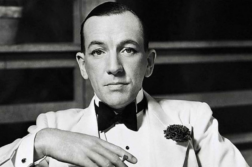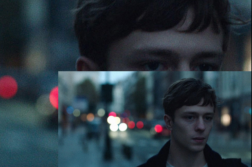In the words of Broadway legend Terrence McNally, who died this year of coronavirus in New York City, “[Plays] provide a forum for the ideas and feelings that can lead a society to decide to heal and change itself.” So perhaps it’s no surprise that many of most influential playwrights are LGBTQ. Here are seven of them.
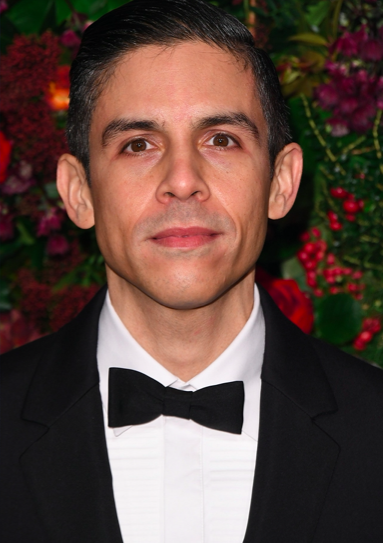 The Irresistible Rise of Matthew Lopez
The Irresistible Rise of Matthew Lopez
Matthew Lopez’s hot new play The Inheritance (directed by Stephen Daldry) has conquered London and is now taking on Broadway at the Ethel Barrymore Theatre. Inspired by Howards End (1910), written by EM Forster — who appears in the play as the closeted guru-esque character Morgan — Lopez draws heavily upon his own experience of gay life in New York City. Incidentally, the play’s title refers to a collective LGBTQ inheritance of grief after AIDS, and the compassion and self-compassion it demands. Lopez, age 41, victoriously overcame his alcoholism 9 years ago and now attests to being a teetotaler. Notwithstanding this, drug use — and sex — figure prominently on-stage. Interestingly, he credits attending a performance of Gatz (a theatrical reading of the book The Great Gatsby) with freeing his creativity. Like Tony Kushner’s Angels in America (but without the spirituality) The Inheritance powerfully captures this particular moment in LGBTQ history.
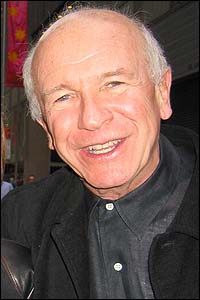 Terrence McNally: A The Breathtaking Array of Characters (1939-2020)
Terrence McNally: A The Breathtaking Array of Characters (1939-2020)
Among the most successful American playwrights ever, Terrence McNally and his partner of 5 years, Edward Albee (author of Who’s Afraid of Virginia Woolf?) undoubtedly rank at the very top. McNally was always out, but Albee’s wasn’t so it was a constant source of stress for the pair. McNally writes as if he has lived each of his characters’ lives, and then distills their stories down to a few choice pages. How does he so convincingly come up such a diverse cast of characters in his plays? He’s wondered the same thing himself. With 4 Tony Awards, his most memorable plays are the camp comedy The Ritz, Love! Valour! Compassion!, Master Class, and Frankie & Johnny in the Clair de Lune. Surprisingly, the literary genius says he’s not being happy with his own work and “often doesn’t even approve of it.” He relentlessly tries to improve what’s on the page. Perhaps that’s the key. Like many playwrights, McNally had a bout with alcoholism, but Angela Landsbury snapped him out of it by simply asking quietly, “Why are you destroying yourself?” He realized he hadn’t written a word in months and is eternally grateful to her for the latter half of his illustrious career.
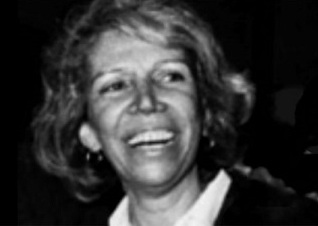 Nancy Cardenas: Pioneer of LGBTQ Rights (1934-1994)
Nancy Cardenas: Pioneer of LGBTQ Rights (1934-1994)
In the fateful year of 1973, well-known actress turned playwright Nancy Cardenas became the first person in Mexico to publicly come out as LGBTQ. She did so in a way that could not be silenced: on live television while discussing the case of an employee who was unjustly fired for being LGBTQ. Subsequently, the Yale-educated Cardenas founded a center for LGBTQ equality and wrote a declaration of LGBTQ rights. She is best known for writing and directing the film based on her play México de mis amores (1979).
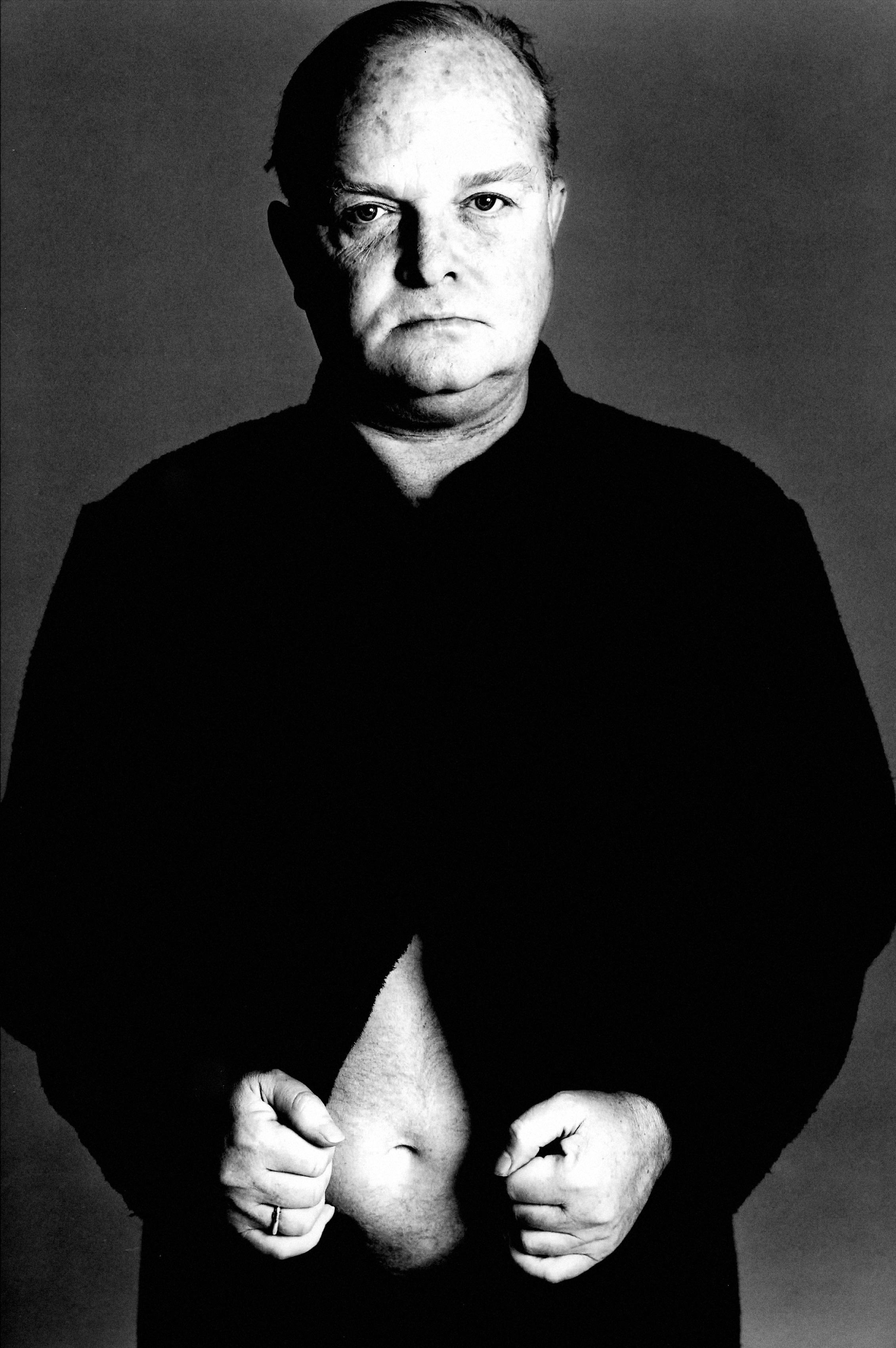 The Colorful Life of Truman Garcia Capote (1924-1984)
The Colorful Life of Truman Garcia Capote (1924-1984)
Born Truman Streckfus Persons in New Orleans, Capote is the name of his adopted step-father. In the 50s, he enjoyed success on Broadway with The Grass Harp, and the musical House of Flowers, and soon branched into screenwriting with such hits as Breakfast at Tiffany’s. In short, Capote’s success as a playwright and screenwriter was far too commercial for his literary talent to be taken seriously. He never won the accolades his writing clearly merits. His masterpieces include the short story A Christmas Memory (1956), and the exceptional work of non-fiction In Cold Blood (1966). But the research for the book seems to have destroyed something in him. It was his last. It was in this period that his popularity as a socialite was at its height. Indeed his high-pitched voice and flamboyant mannerisms made him the darling of the jet set. Although not an actor, he even played the all-powerful villain in the hilariously successful film Murder By Death (1976). Momentously, in 1975, Esquire Magazine published the opening chapters of Answered Prayers, his long-awaited new novel. The thinly veiled fiction mocked the foibles, including the extramarital affairs, of well-known members of the same jet set, sometimes using their real names. As a result, he was ostracized, the ink ran dry, he sank into addiction, and he went on the talk show circuit.
 Sir Noël Coward: The Master (1899-1973)
Sir Noël Coward: The Master (1899-1973)
With a posh sense of style and a quintessentially British sense of humor, Noël Coward rose from the working-class. Not unusual at the time, he attended school only until age 11 when he started performing in the theater. Nonetheless, a voracious reader, he excelled at everything he did, earning him the nickname The Master: singing, acting, writing poetry, plays, screenplays, books, musicals, operas, drawing, and painting. In 1921, he visited the US and thereafter incorporated the upbeat pace of Broadway plays, which he found to be fresh and inspiring in a way that British plays were not. During WWII, Coward wrote propaganda to convince the US to enter the war. Soon, however, he was assigned to entertain the troops as a singer. Like Lorca, Noël Coward was on the Nazi Black List and would have also been targeted had Germany won the war. He wrote hundreds of songs, such as Mad Dogs and Englishmen and more than 50 plays including Peace In Our Time (1945), the occult film Blithe Spirit (1941), and the bisexual play Design for Living (1932). Fortunately for us, his plays of the 1920s and 30s experienced a resurgence of popularity in the 60s and 70s.
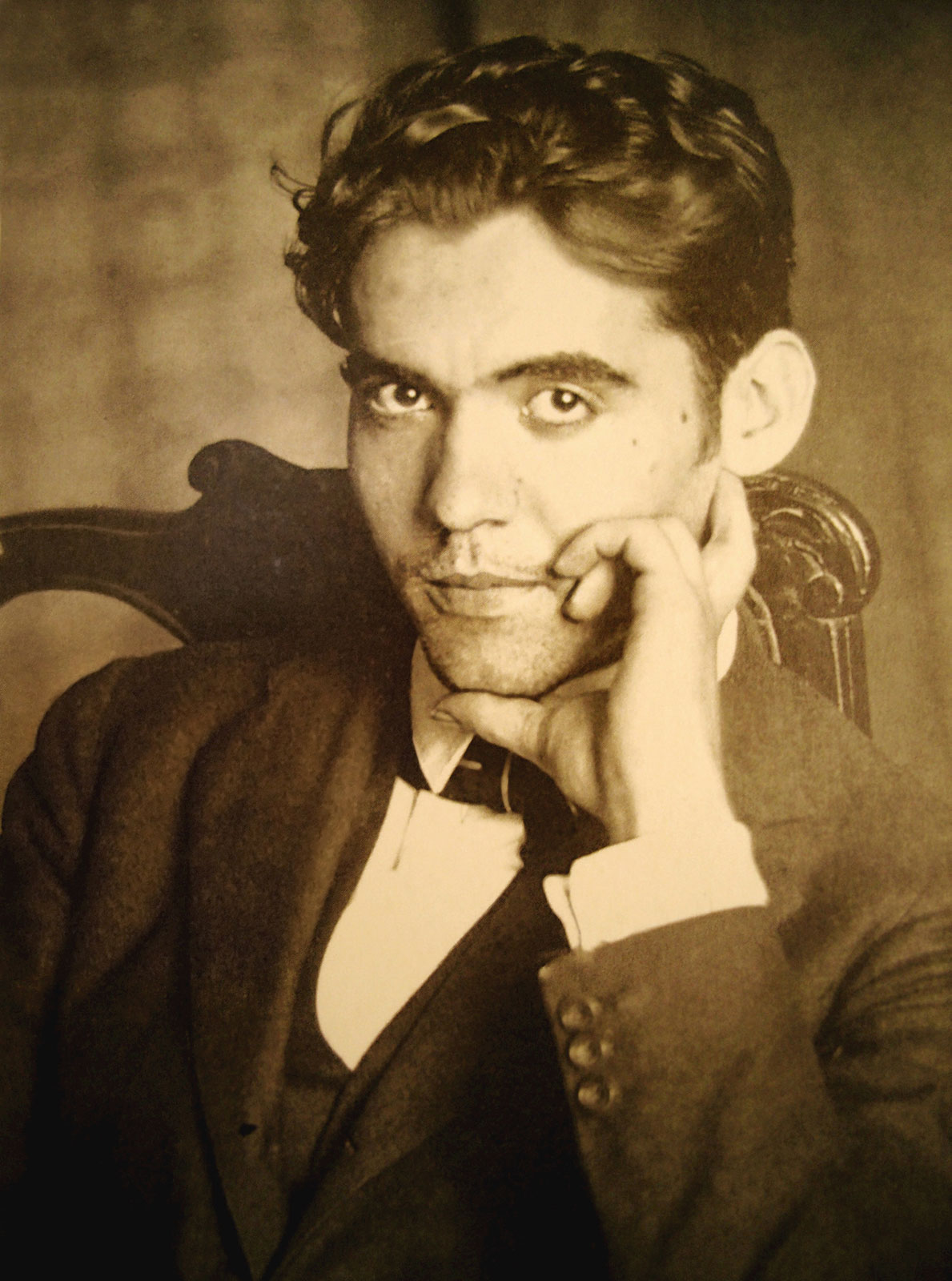 Federico Garcia Lorca: Consummate Artist (1898-1936)
Federico Garcia Lorca: Consummate Artist (1898-1936)
Born near Granada, Lorca wanted a career in music, but could have as easily become a visual artist. In the dorm in Madrid he met Luis Buñuel and Salvador Dali. A platonic bromance flourished and Dalí became his set designer. But the sudden success of Lorca’s first book Gypsy Ballads appears to have destroyed his closest relationships including with Dalí. The bitterness was compounded the following year when Buñuel and Dalí had a sudden success of their own with the film Un Chien Andalou (1929). The stress of being a public person while trying to conceal his sexuality prompted Lorca to tour the Americas. When he returned, the new leftist government appointed him director of a student theater company created to bring first-rate theater to the poor for free. This was his most prolific period. Lorca wrote, directed, and acted in plays performed throughout the countryside. His best known works are Blood Wedding, Yerma and The House of Bernarda Alba. Recurrent themes deal with spirituality, the role of women, and class. When asked about his political preferences, Lorca said he felt “Catholic, communist, anarchist, libertarian, traditionalist and monarchist at the same time.” He never joined a political party and was proud to be a friend and brother to all. Nonetheless, when the government changed hands, the theater soon went dark. Lorca was one of the first people targeted by Franco’s Falangists due to his sexuality. He was murdered and buried in a mass grave at the start of the Spanish Civil War, immortalizing his legacy forever. His works were banned in Spain until 1953.
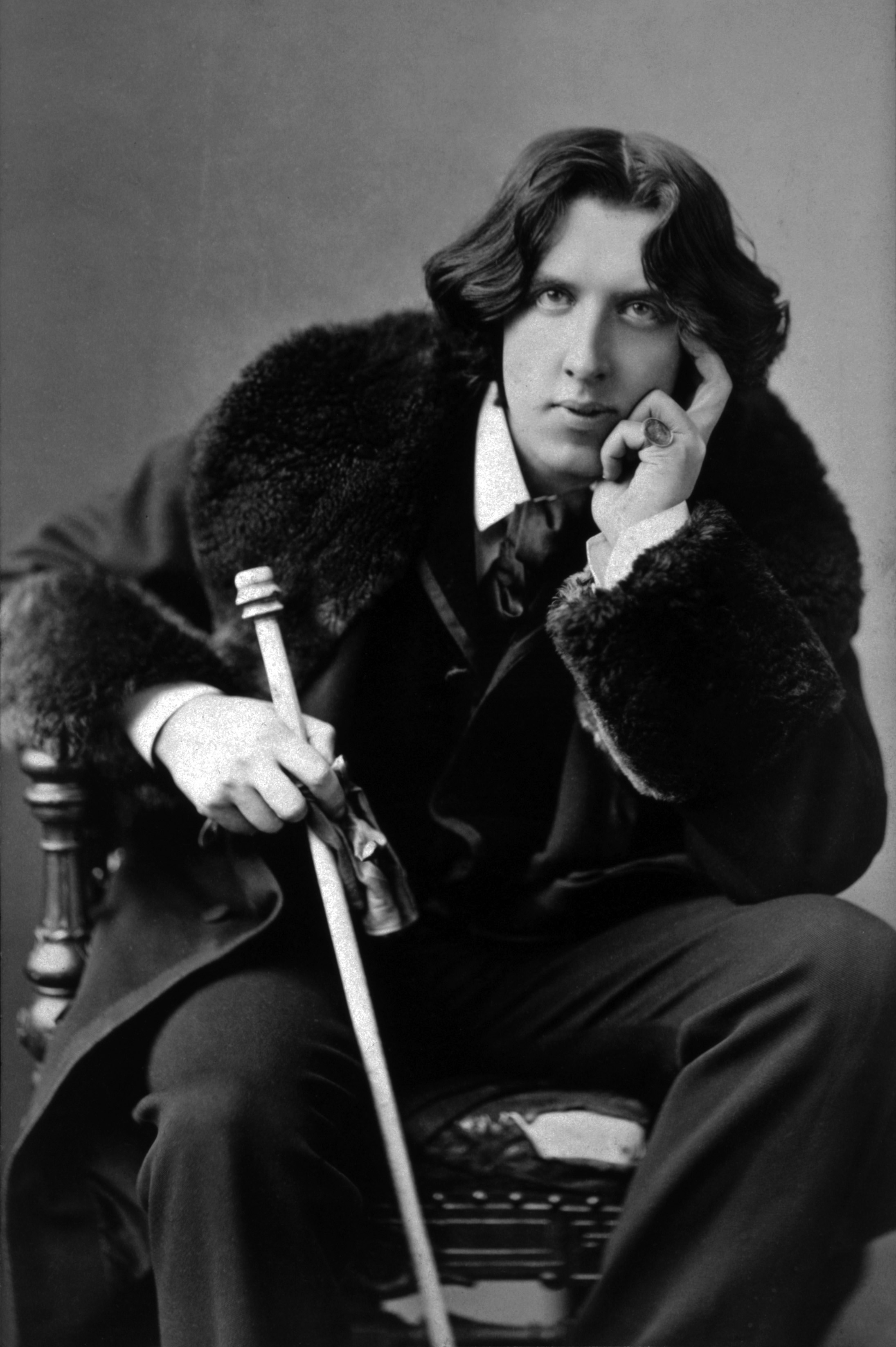 The Singular Personality of Oscar Wilde (1854-1900)
The Singular Personality of Oscar Wilde (1854-1900)
Irish by birth, no doubt Wilde is one of the greatest playwrights ever. Flamboyant in dress, and armed and equipped in the art of conversation, Wilde became a popular personality while working as a journalist in London. As an illustration of his originality, he famously said, “I find it harder and harder every day to live up to my blue china.” He is best known for his novel The Picture of Dorian Gray (1890) and the comedy The Importance of Being Earnest (1895), still huge hits to this day. Unfortunately, the same year he was convicted of “gross indecency” by his boyfriend’s vituperative father. (The father, the Marquis of Queensberry, may have been hyper-vigilant against sexual predators after his oldest son was mysteriously killed by someone the young man worked for and seems to have been intimate with.) Upon Wilde’s release, ostracized by nearly everyone, he fled to France where he lived in extreme poverty for the last 3 years of his life. There he wrote The Ballad of Reading Gaol and an interesting work about his spiritual journey called De Profundis. In 2017, he and about 50,000 other men similarly convicted were at long last pardoned.
Laura Moreno is a manuscript editor and freelance writer based in Los Angeles.



